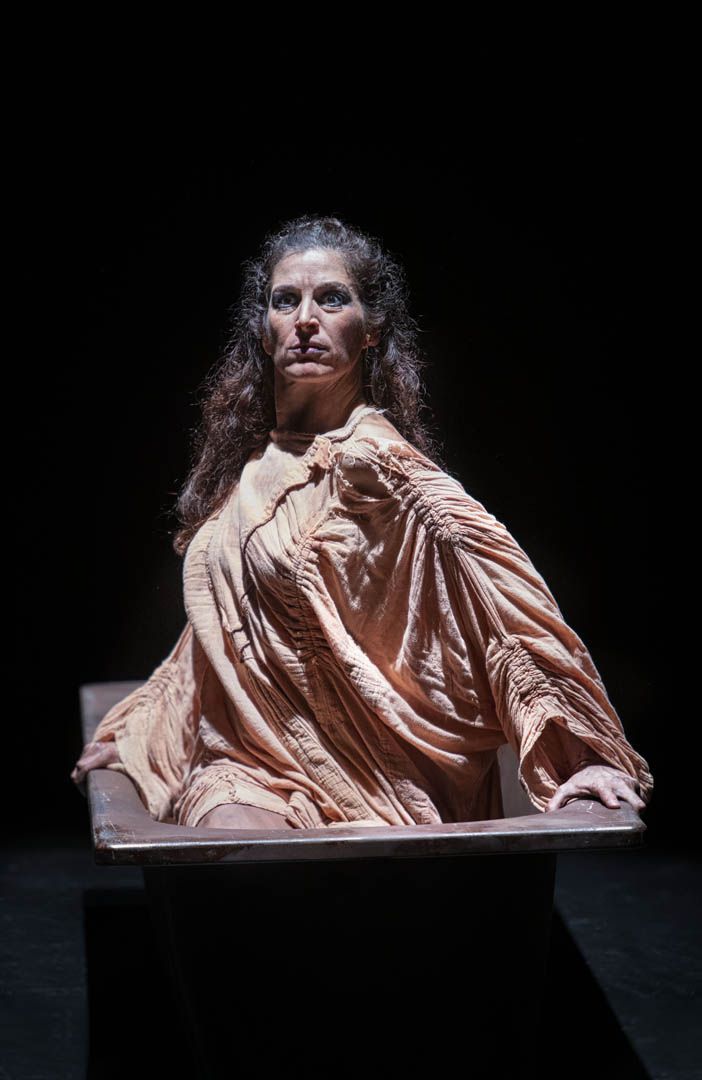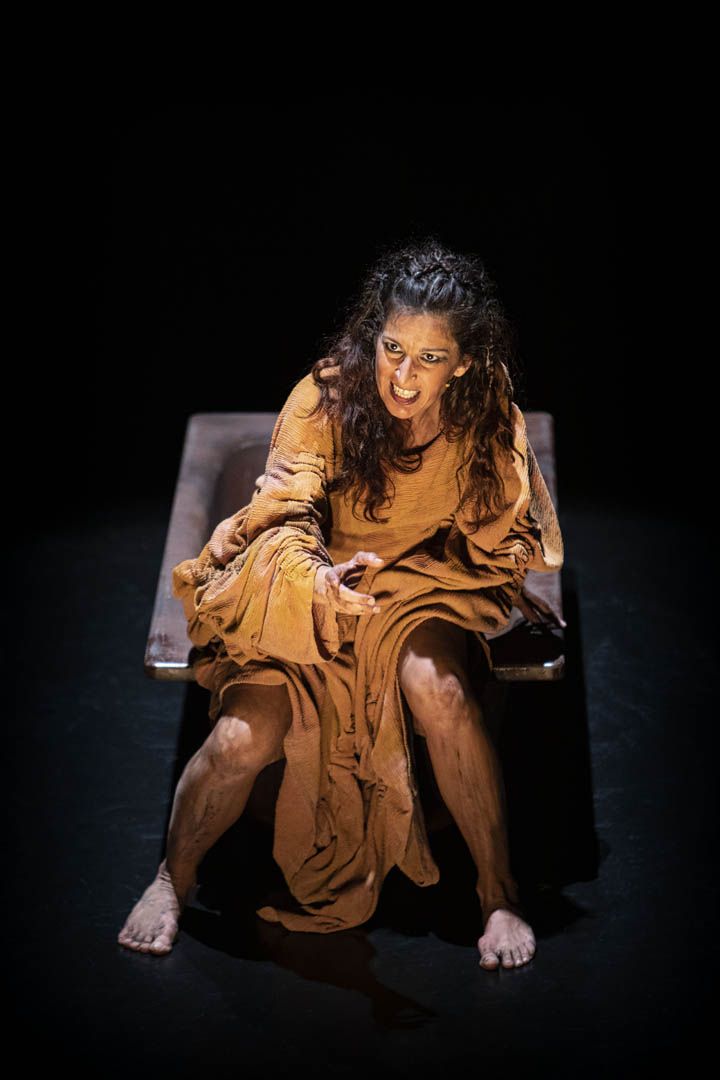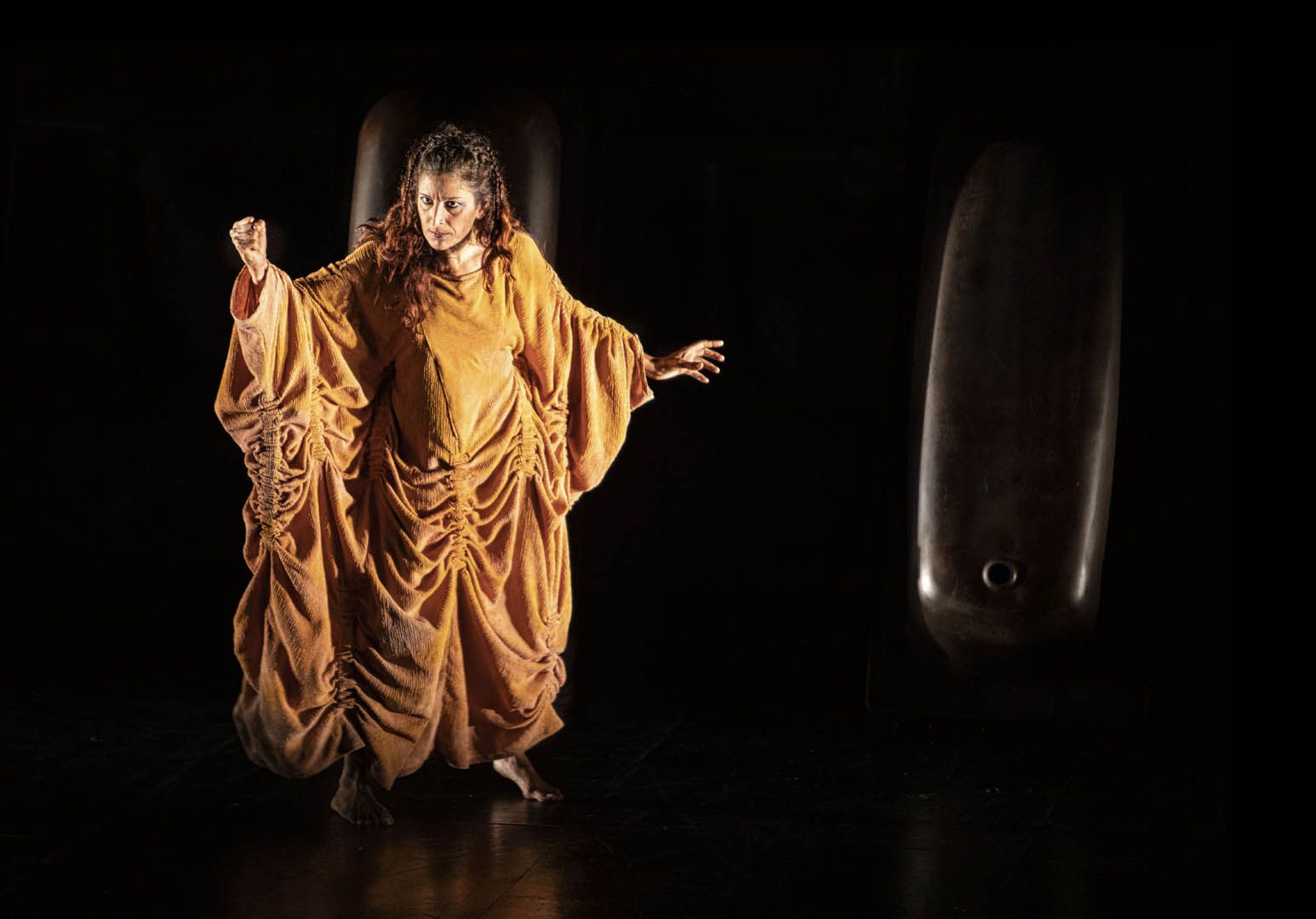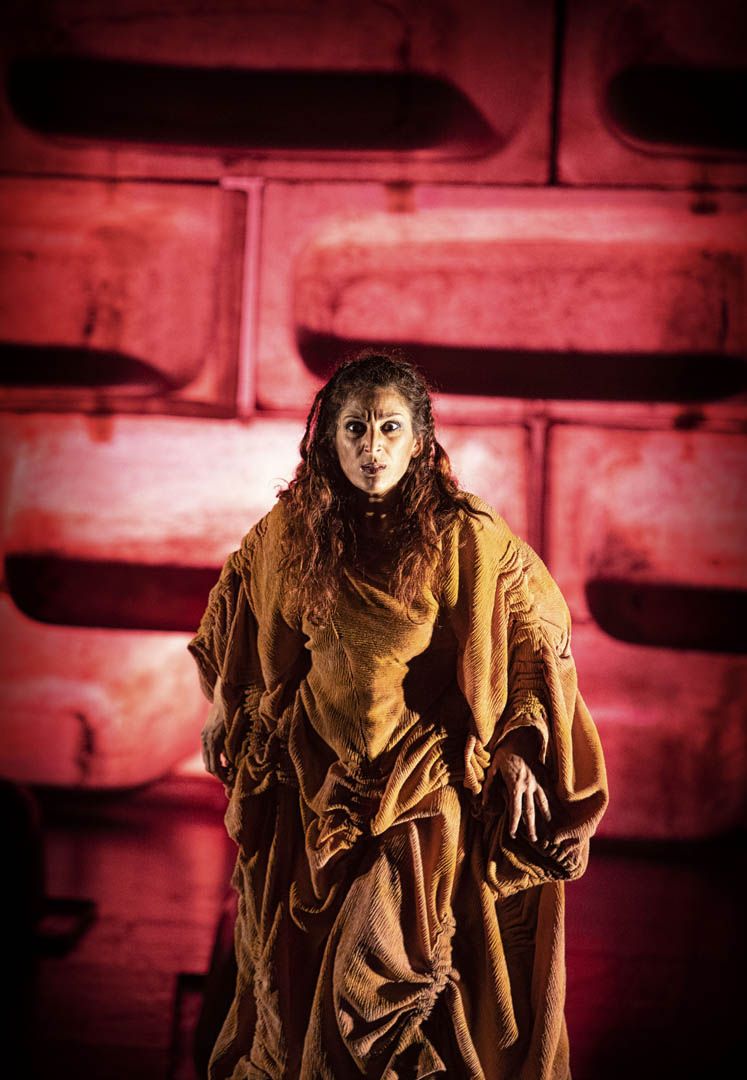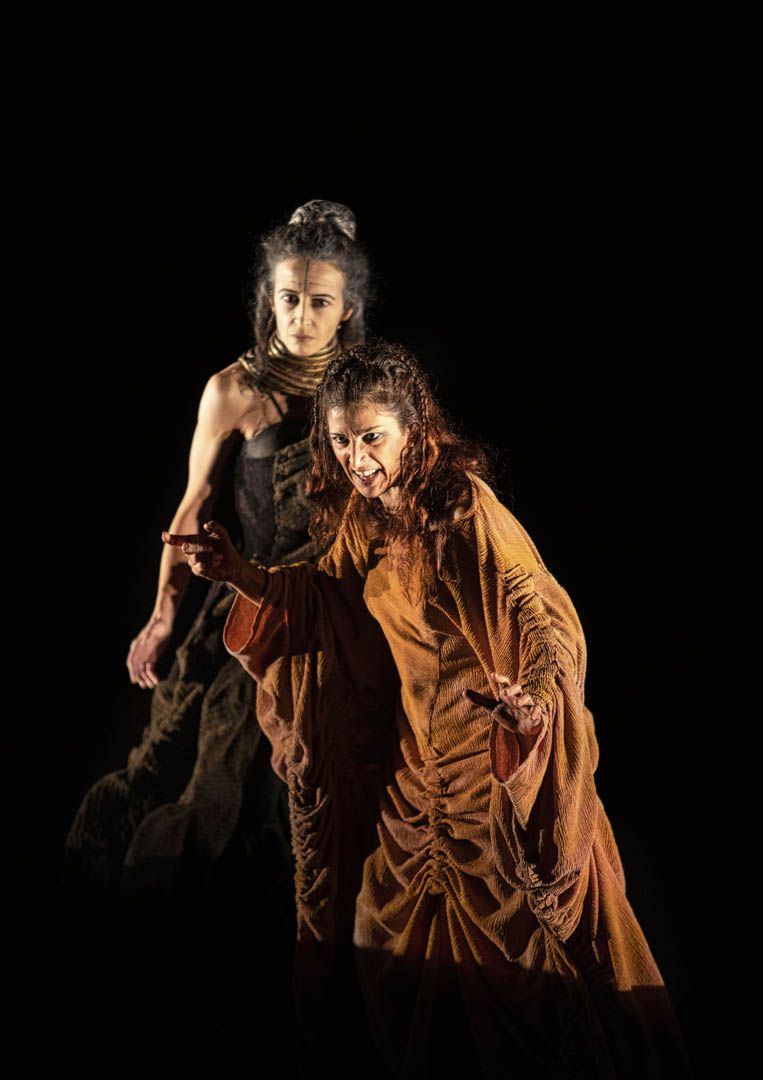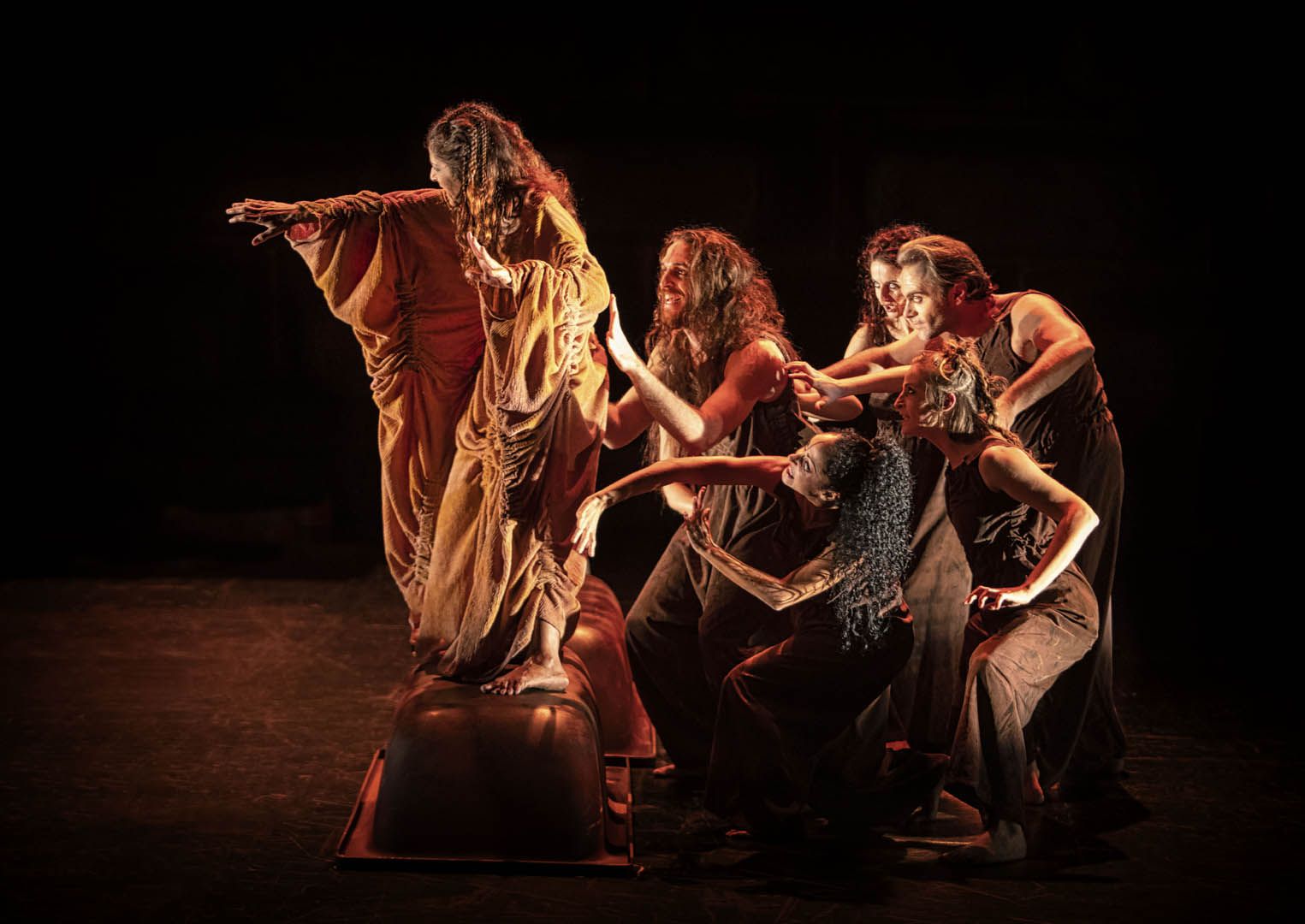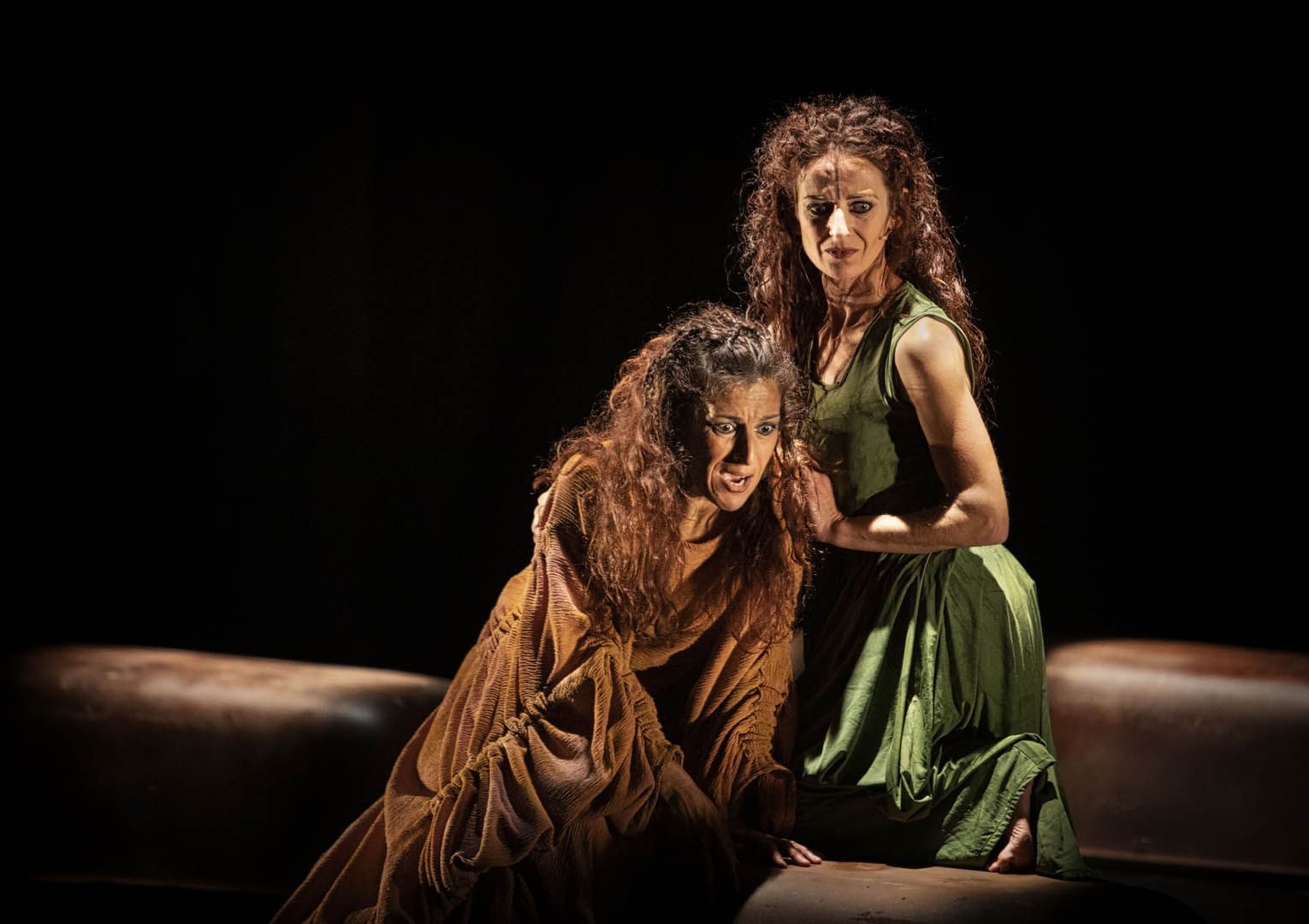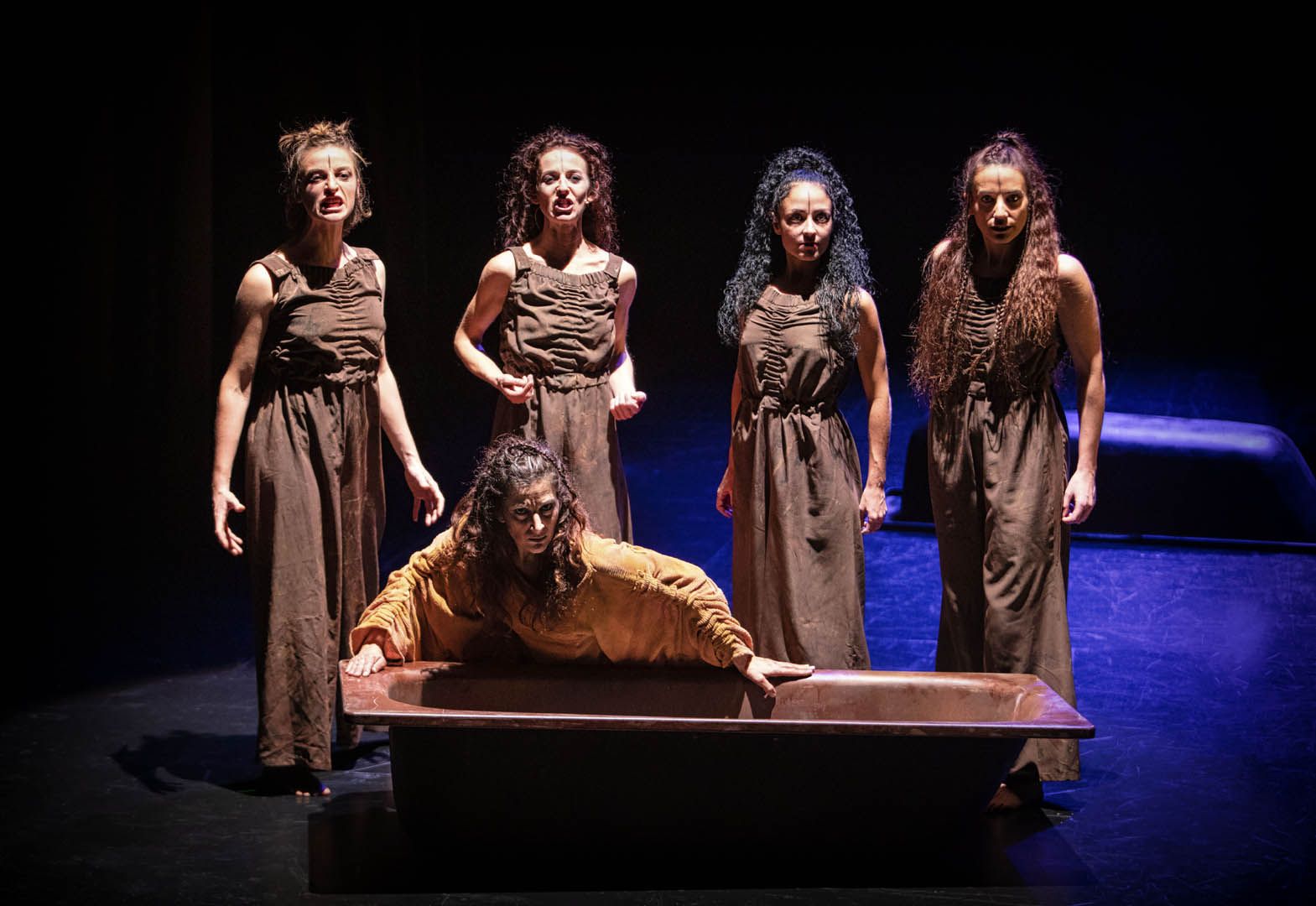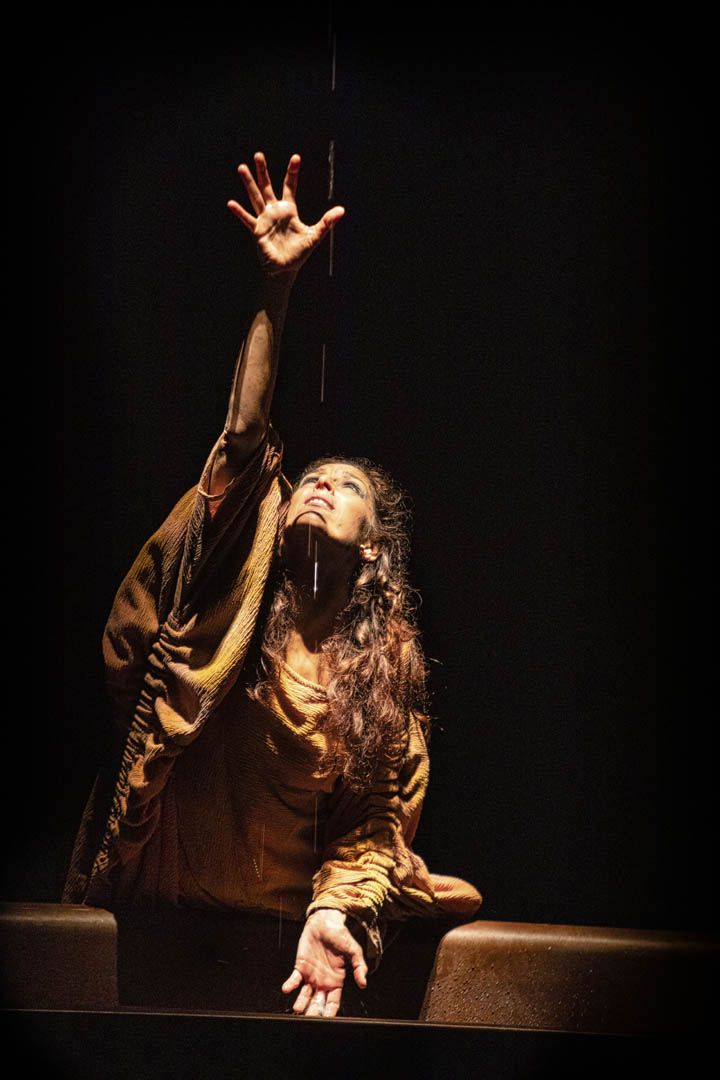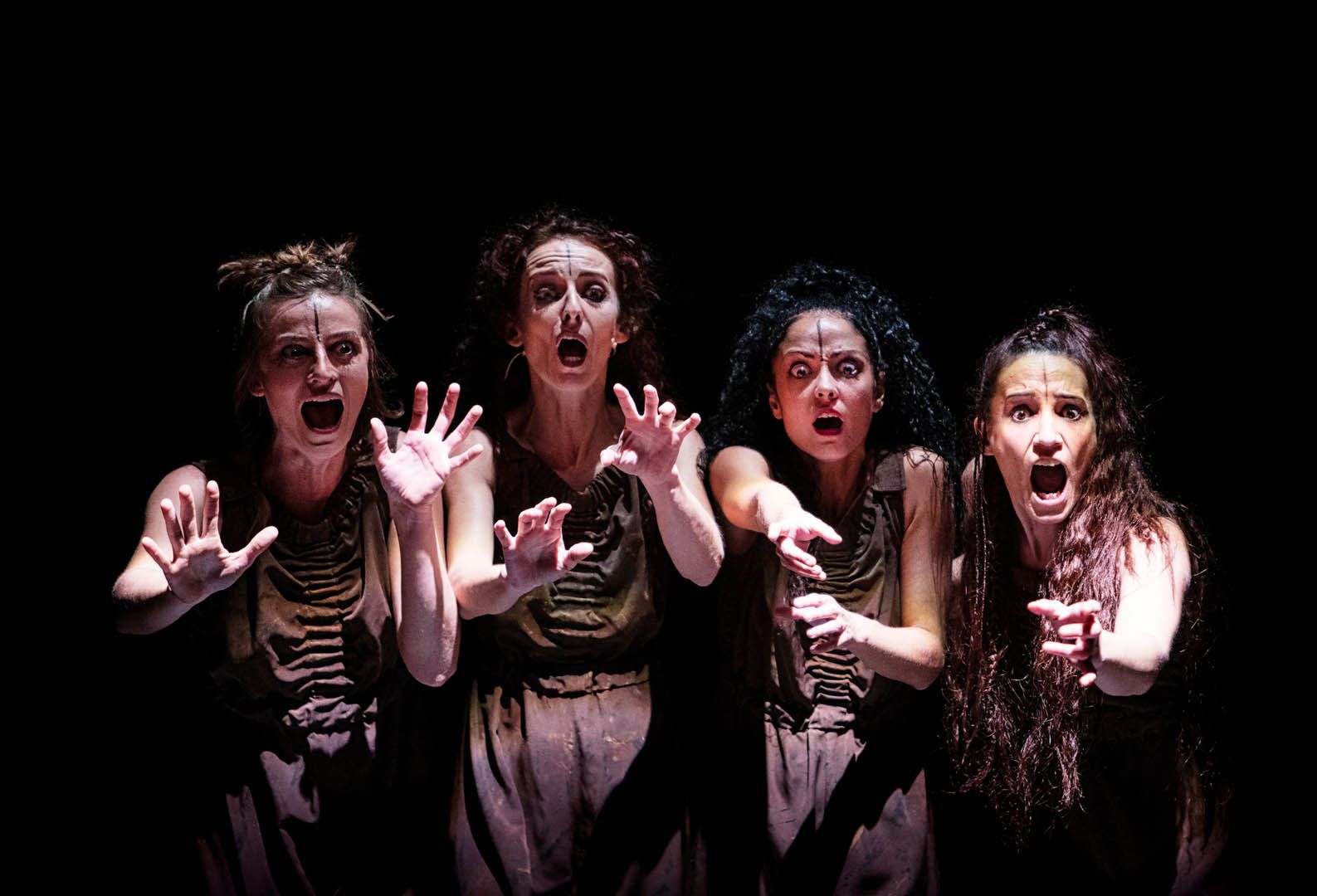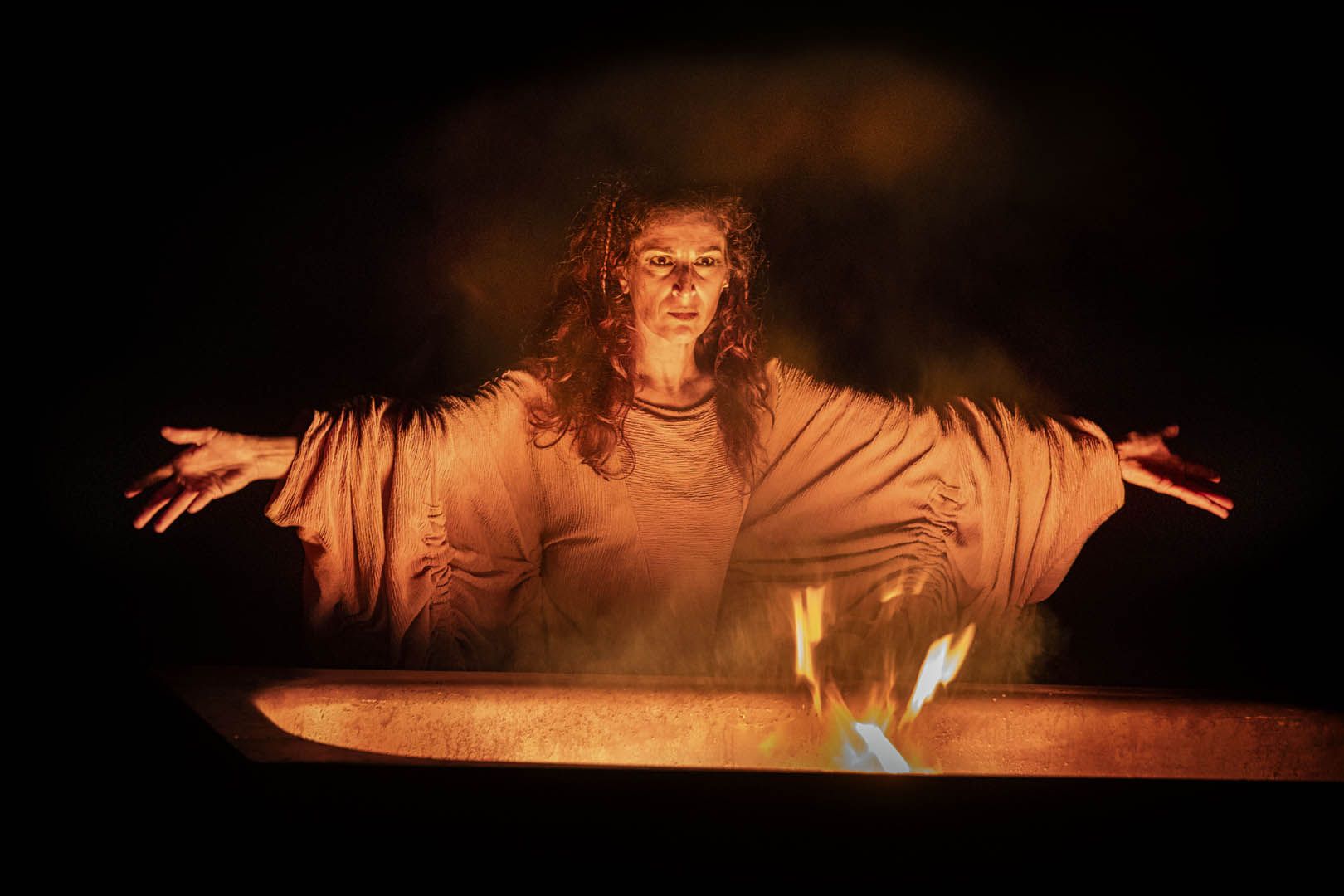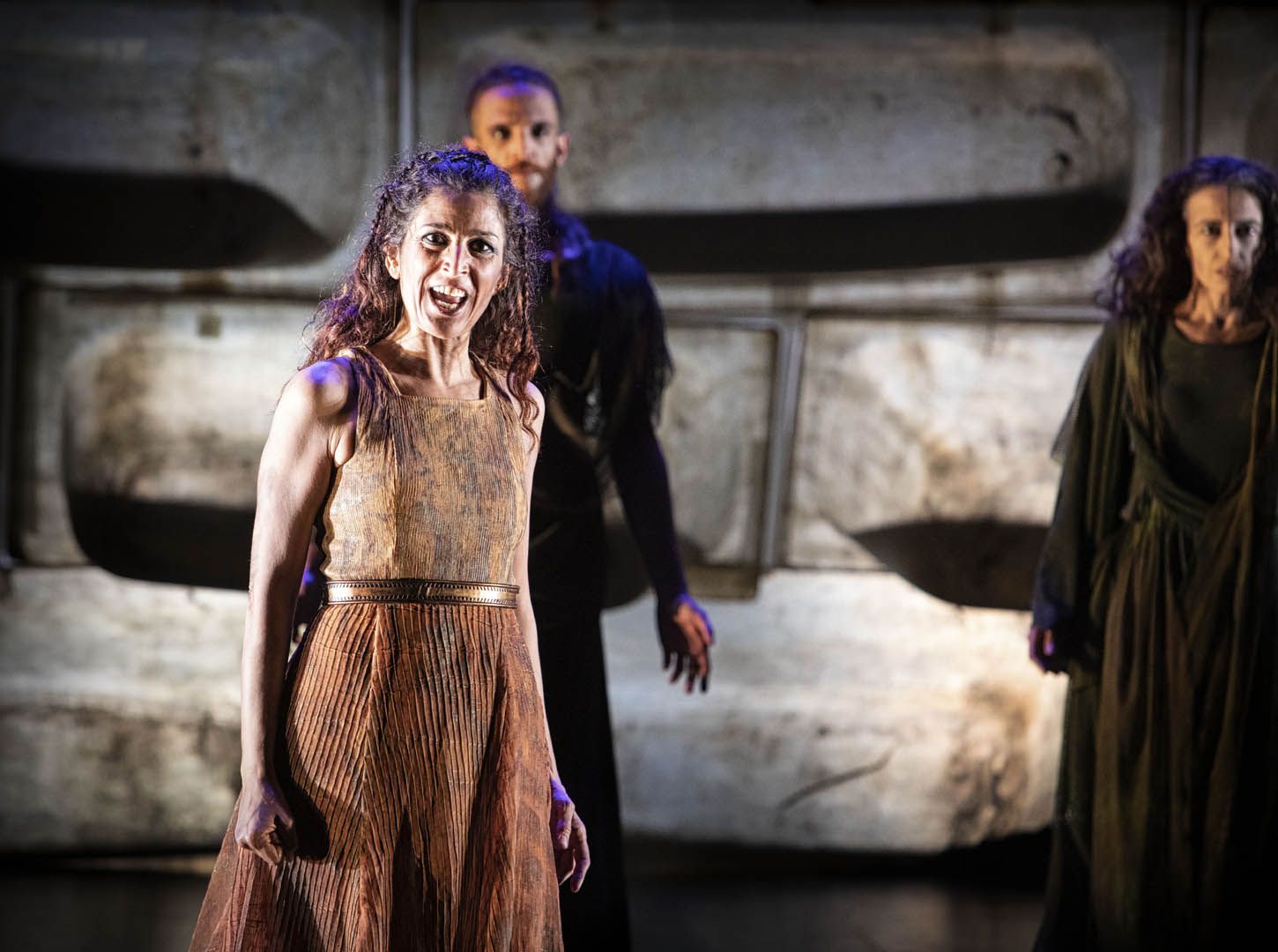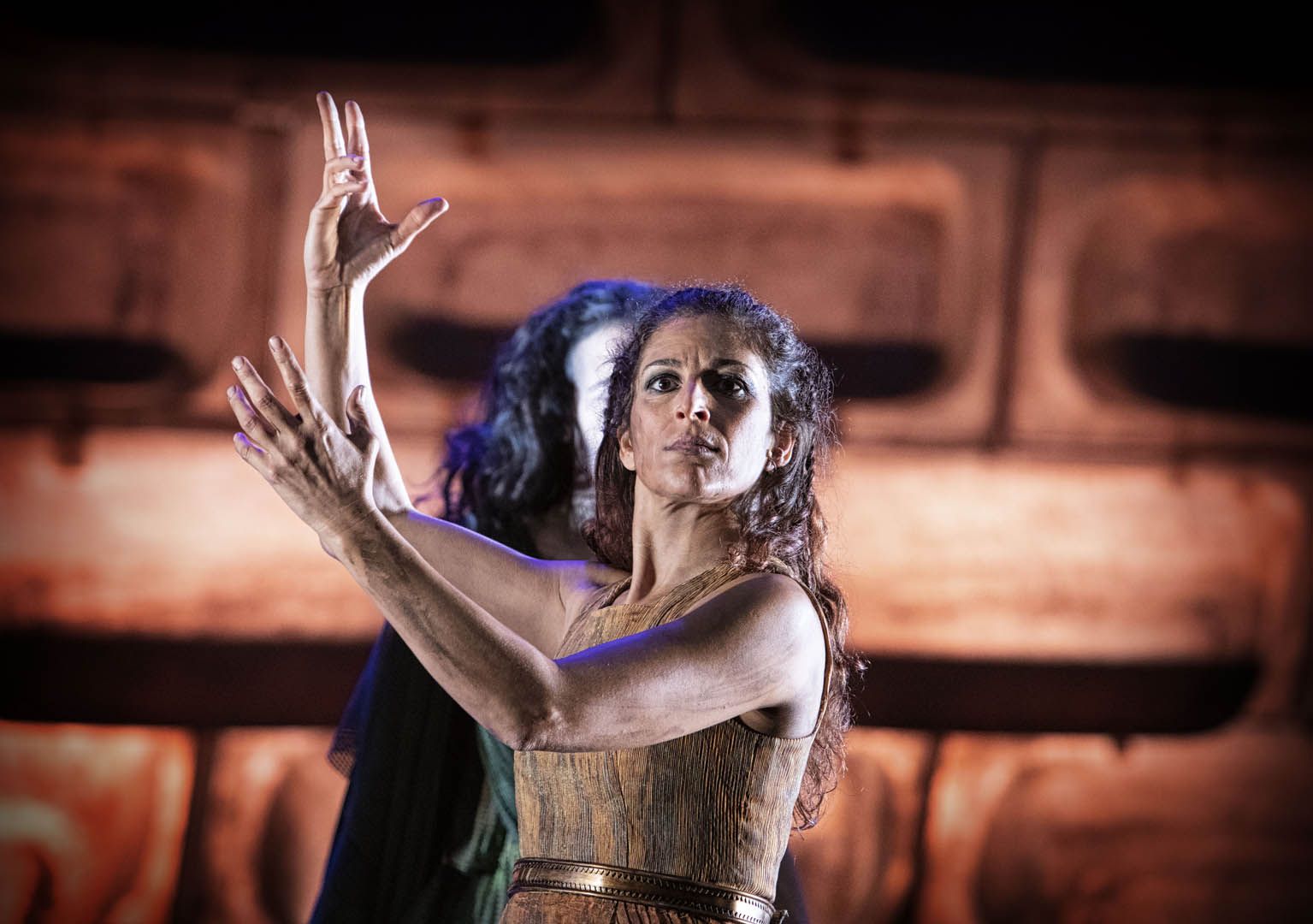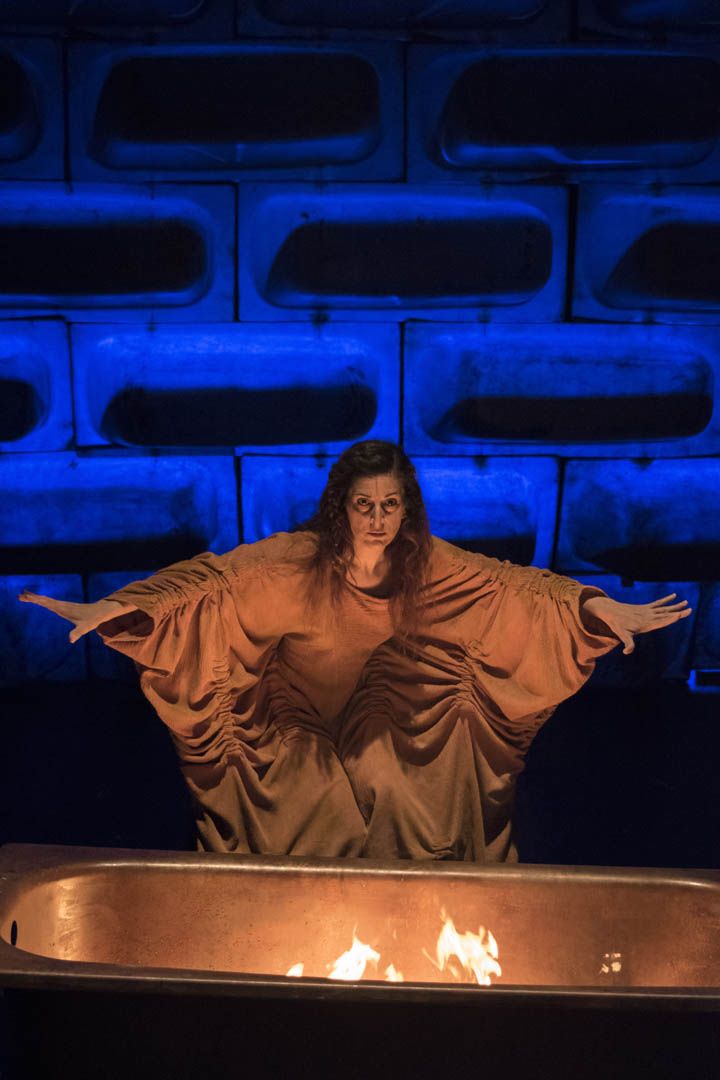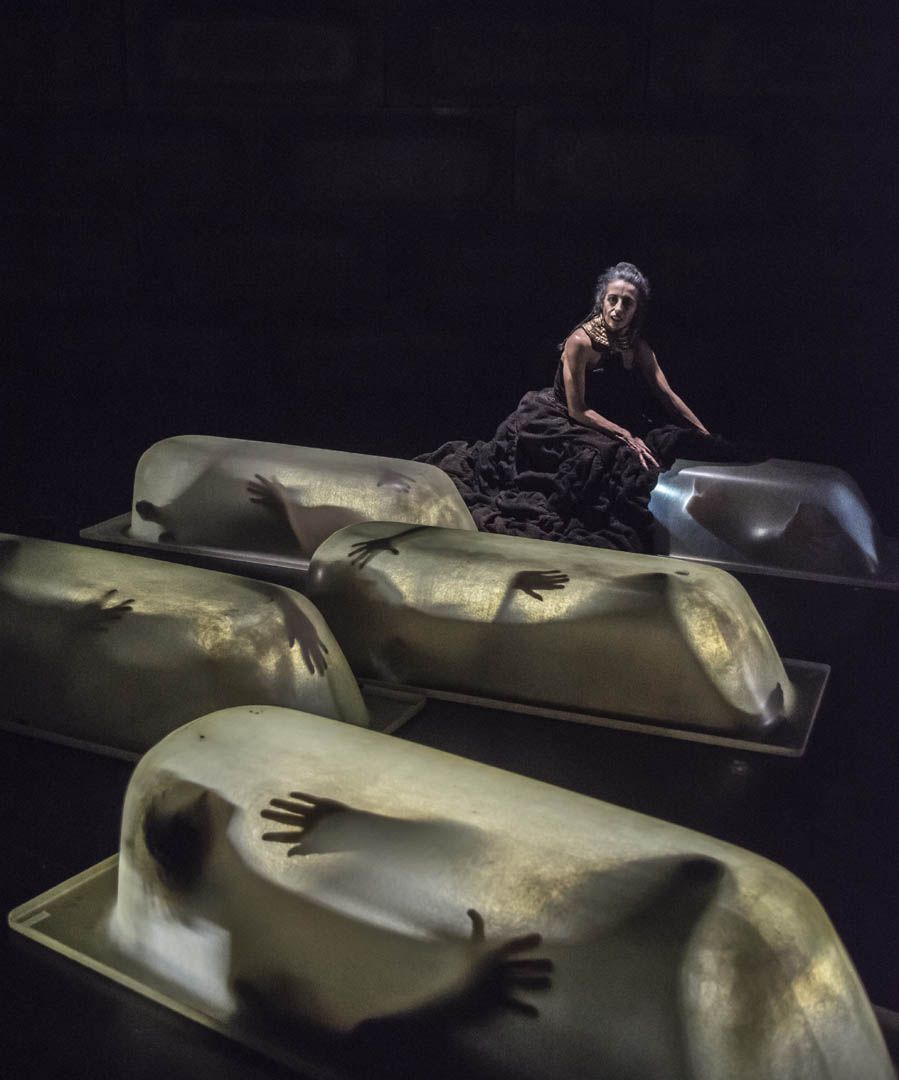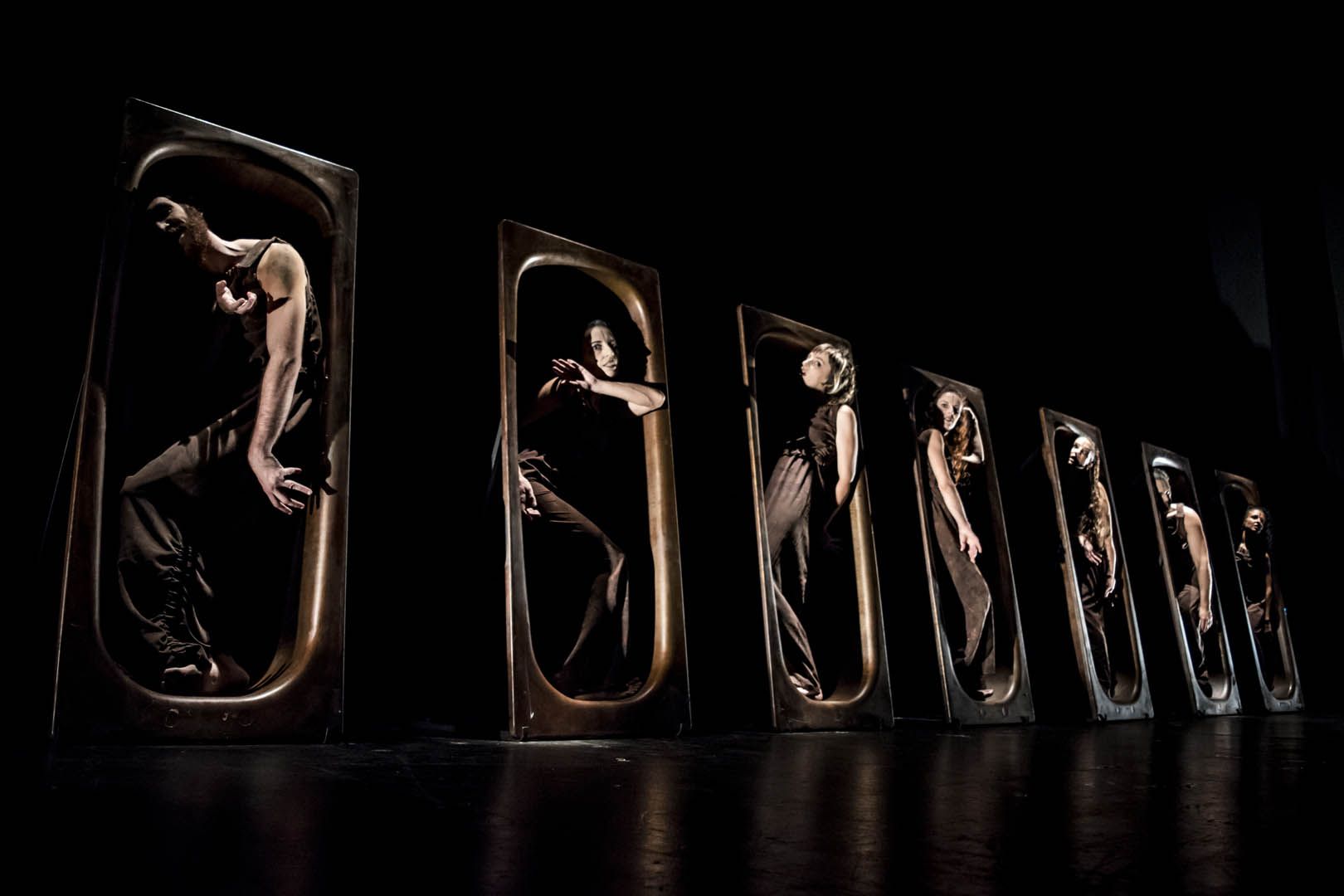ELECTRA.25 based on the tragedies by Sophocles and Euripides
- Saturday, July 16Paphos Ancient Odeon
- Monday, July 18Makarios III Amphitheatre
- Performances start at:21:00Please arrive at the theatre before 20:15
- Duration:
70 minutes
Based on the two homonymous tragedies by Sophocles and Euripides, Electra.25 by the Atalaya Theatre of Spain, reconstructs the everlasting circle of violence (death-revenge-death) in the House of Atreus and dramatizes one of the darkest parts of the myth: vengeance against Clytemnestra and Aegisthus for the murder of Agamemnon.
Electra keeps the memory of her father’s killing alive and implores the gods to help her punish his killers. The return of her exiled brother, Orestes, rekindles her desire for vengeance and sets in motion the act of punishment that culminates in matricide. This act of revenge became and continues to this day to be the source of multiple conflicts throughout the history of Mankind.
Electra.25 creates a bridge between Electra of the ancient Greek tragedians and the contemporary dramatists that adapted it to the 20th century: Hofmannsthal and Sartre. Ricardo Iniesta approaches and stages the myth in an innovative manner by reinforcing the Chorus in its various forms and using traditional music to underline the human and universal dimensions of the characters.
WITH GREEK AND ENGLISH SURTITLES
- SUITABLE FOR AGES 13+
- Direction/Dramaturgy/Set design:
Ricardo Iniesta
- Direction of Chorus:
Marga Reyes
- Music/Orchestration:
Luis Navarro
- Music:
Popular music from the Balkans, Italy and Belarus
- Costume design:
Carmen de Giles, Flores de Giles
- Choreography:
Juana Casado, Lucía You
- Lighting design:
Alejandro Conesa
- Soundscape:
Emilio Morales
- Production coordinator:
Victoria Villalta
- Production:
Francesca Lupo
Cast:
- Electra:
Silvia Garzón
- Clytemnestra:
María Sanz
- Chrysothemis:
Lidia Mauduit
- Aigisthus:
Raúl Vera
- Orestes:
Enmanuel García
- Chorus:
Garazi Aldasoro
- Chorus:
Imasul Rodríguez
- Chorus:
Ángela González
DIRECTOR’S NOTE
Having as a starting point the dramaturgic composition by Carlos Iniesta, twenty-five years ago, of the myth of the House of Atreus and the character of Electra, Electra.25 is a new approach to the myth based on the homonymous tragedies by Sophocles and Euripides.
Its main innovation is the introduction of the character of Orestes from the beginning of the play –just like in the classical versions– so that he has a longer, not physical but emotional, presence on stage for the audience. This creates more tension and empathy in the audience in contrast with the leading characters of Electra, Chrysothemis and Clytemnestra who are unaware of his presence. Orestes, however, also appears in the end after he has taken his revenge as suggested by Aeschylus in Choephori (The Libation Bearers) pursued by the Furies, not only to become a hero for killing his father but also to be morally reproached. At the same time, a new Chorus is introduced that appears in more than one occasion and is composed of the young women of the palace who are in their majority suspicious of Electra.
This is another factor of tension that was added to the first version of the play and is based on Electra by Hugo von Hofmannsthal. All these innovations increase the complexity of the plot which is extremely simple in the first version of the play. The dramaturgy of Electra.25 reinforces the leading role of the Chorus in its various forms: Narrator-Chorus, Chorus of Mycenaean women, Chorus of Clytemnestra’s Maids, Chorus of the Palace Girls, Chorus of Furies, and Chorus of the People of Mycenae.
Ricardo Iniesta
ΑTALAYA THEATRE
Critics agree that Atalaya Theatre has managed to develop a unique personal style characterized by the energy of the actors and actresses, expressed both through the body and the voice, the contemporary reading of great universal texts, the expressionist force of the images and the poetic treatment of space, music and objects.
The continuity of its permanent team allows for extensive research processes for each staging. In the middle of 2022, the company celebrated its 40th anniversary and the fact that it has become one of the most solid points of reference in Spanish theatre.
Atalaya Theatre has participated in more than 170 national and international festivals in 40 countries across six continents and has received over 50 awards, including the National Theatre Award in 2008. In the same year, the International Centre for Theatrical Research (TNT), began its operation. The Centre is now a permanent laboratory-school and boasts the largest private theatre in Andalusia. TNT has regularly taken part in cultural projects implemented by the European Union.
Atalaya Theatre’s language is characterized by live choral singing, images full of visual strength, intense rhythm and acting based on energy. This led most festivals to avoid the use of surtitles in performances, like for example in Russia. Atalaya Theatre has produced 22 shows in almost 40 years. Some of them are King Lear, Marat/Sade, Mother Courage, Celestina the tragicomedy and with Ariadne and Medea has left an indelible mark on the company’s theatrical language.
It should be noted that most of the cast of Elektra.25 -and the rest of the artistic team- are actors and actresses trained in the first edition of the TNT Theatrical Research Laboratory, now in its 24th edition.
More than a hundred educators from over 30 countries, representing theatre traditions from all over the world, have participated as teachers and passed on their rich experience to both the members of Atalaya Theatre, who very often attend the Laboratory workshops, but also to the company’s director himself, who has participated on numerous occasions.
